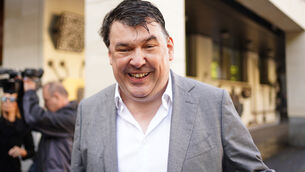Dreaming of a white Christmas
LIKE Bing Crosbie, we dream of white Christmases. However, the idea that the country should be blanketed in snow, to be properly decked out for the festival, is somewhat odd. Christmases are hardly ever white at our latitude, at least in Europe. Most places in Ireland, I am told, had snow on Christmas day in 1947, exactly sixty years ago but the festive landscape has remained green every year since then. Yet, the pictures appearing on Christmas cards always have snowy backgrounds and it’s de rigeur for film-sets to be decked out in cotton wool when Christmas scenes are being shot.
So what has given rise to this curious meteorological expectation? Is it an ancient folk memory, handed down through the generations, or the Little Ice Age which hit Europe several centuries ago? During the 1500s, Europe began to experience more severe winters. Nobody is sure why but fluctuations in the output of the sun or the long-term effects of volcanic eruptions may be responsible. Paintings from those times depict skaters on Dutch canals and hunting parties setting out into gleaming white landscapes. The very cold winters lasted well into the 19th Century; in Dickens’ day, the Thames froze over regularly. We occasionally get a taste of Little Ice Age conditions here; many of Ireland’s rivers became ice-bound in 1963 and again in 1982.














